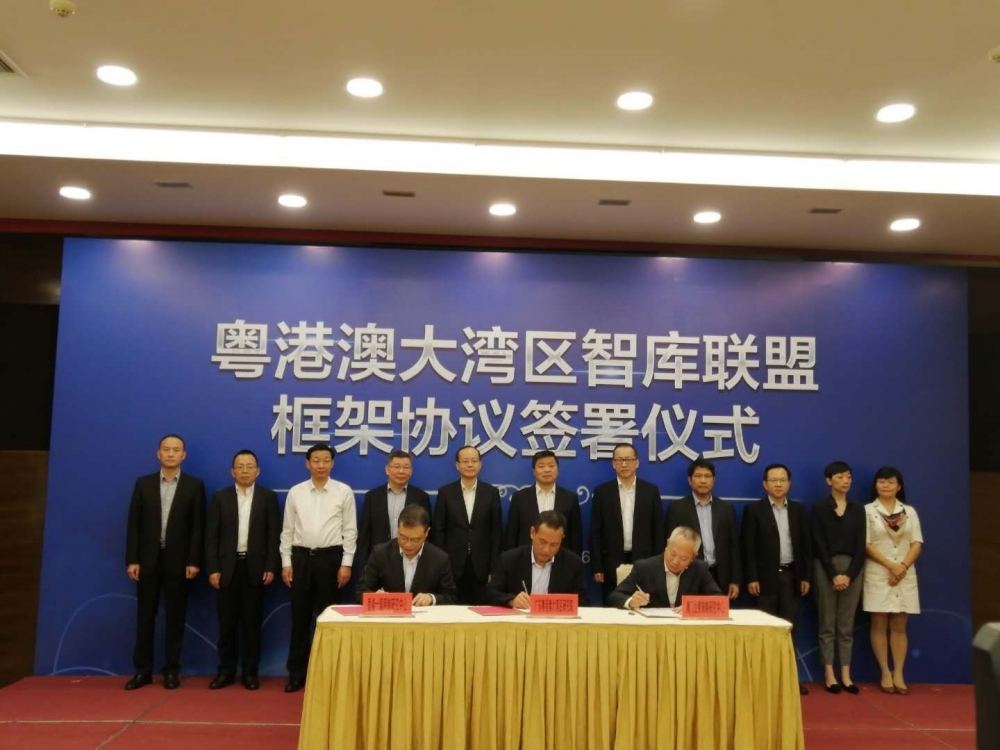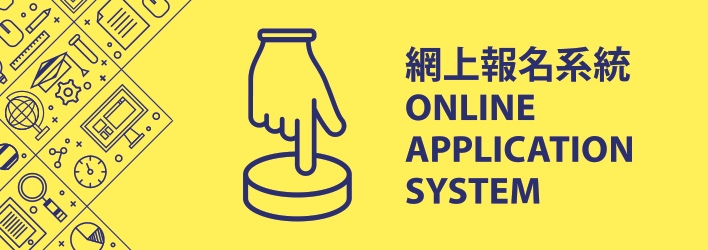
Think tank representatives from three regions sign the agreement
In order to implement the requirements of the Outline Development Plan for the Guangdong-Hong Kong-Macao Greater Bay Area the Think Tank Alliance Framework Agreement was signed in Guangzhou on 26th June, 2019. Ouyang Weimin, Vice Governor of the People’s Government of Guangdong Province and Yang Jian, Deputy Director of the Liaison Office of the Central People’s Government in the Hong Kong S.A.R. attended the event and delivered speeches. Other guests, including Tommy Yuen, Director for Constitutional and Mainland Affairs Bureau of the Government of the Hong Kong S.A.R., Lin Ji, Vice Secretary General of People’s Government of Guangdong Province, and Xu Jing, Deputy Director of the Research Office of the Macao Liaison Office of the Central People’s Government in the Macao S.A.R. witnessed the signing ceremony. There were more than 40 think tank organizers and representatives from Guangdong, Hong Kong and Macao who participated in this event. Sio Chiwai, President of Macau Development Strategy Research Centre attended the ceremony and signed the Agreement on behalf of the Macao think tank, and Zhao Dianhong, the Assistant Director of the Institute for Social and Cultural Research (ISCR), M.U.S.T., attended the event on behalf of the Institute.
Vice Governor Ouyang Weimin expressed in his opening speech that the construction of the Guangdong-Hong Kong-Macao Greater Bay Area is a major national strategy that President Xi Jinping plans, deploys and promotes in person, and Guangdong Province attaches utmost importance to its construction. It is hoped that the three regions’ think tanks will take the opportunity of signing this Framework Agreement to promote and improve exchanges and cooperation between them, study more valuable policy recommendations, facilitate the Greater Bay Area construction, and improve the welfare of the citizens of these three regions.
Deputy Director Yang Jian indicated that the signing of the Framework Agreement is a remarkable event in the historical exchange of think tanks in the three regions, which profoundly reflects the broad vision, thoughtful arrangement and strong responsibility of Guangdong, Hong Kong and Macao. The signing of the Agreement represents the new stage of communication and cooperation between the three think tanks who have contributed with intellectual strength to the Greater Bay Area construction.
The Guangdong-Hong Kong-Macao Greater Bay Area Think Tank Alliance was jointly established by the Guangdong Academy of Greater Bay Area Studies, Hong Kong One Country Two Systems Research Institute, and Macau Development Strategy Research Centre, based on communal negotiation and agreement. It aims to implement the Guangdong-Hong Kong-Macao Greater Bay Area Development Plan, comprehensively and accurately carry out the principle of One Country Two Systems, develop new concepts, innovate and improve cooperation mechanisms, carry out the sharing of resources, and the synergetic and coordinated development of the three regional think tanks. It also targets at improving the research on the Greater Bay Area construction and supply.
According to the Agreement, the Guangdong-Hong Kong-Macao Greater Bay Area Think Tank Alliance will conduct proactive, strategic and targeted research on major issues in the construction of the Area, and propose professional, constructive and practical recommendations to better serve the policies made by the Central Government and the three regional governments. The Alliance will also function as a bridge between the policies of the Plan and public opinion to efficiently convey and exchange information, by establishing the foundation of social public opinion to the Greater Bay Area construction.
The Alliance will promote the Greater Bay Area and enhance its international influence to attract global talents, through a series of activities including public promotion, conduct of forums, international think tank communication and publication of research results.





